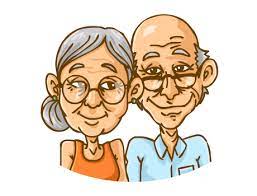OP ED | OPINION-EDITORIAL | Confronting ageism

In the Philippines, there are over nine million people belonging to the elderly, with nearly half still working but can barely make ends meet, according to the former executive director of the Commission on Population and Development. Juan Antonio Perez III said most of the elderly are also unhealthy but cannot afford to seek medical intervention.
In addition to the physical debilitation of old age, Perez said many of the elderly suffer from mental problems such as depression due to chronic poverty and health conditions that they are unable to ease. Various forms and levels of dementia aggravate the impairments of aging, but many of the elderly who suffer from this debilitation have no one to provide them the necessary care.
Between 1950 and 2010, global life expectancy rose from 46 to 68, according to the United Nations. By 2019 before the COVID pandemic struck, there were 703 million people aged 65 or older around the world, with East and Southeast Asia home to the largest number, at 261 million, the UN reported. By 2050, the UN expects the number of elderly people worldwide to hit 1.5 billion. All regions are projected to see an increase, with the fastest rise in the least developed countries.
Recognizing the growing ranks of the elderly and their unique needs, the UN General Assembly in December 1990 declared Oct. 1 as the International Day of Older Persons. This year the special day focused on promoting the resilience of older persons in a changing world.
In the Philippines, Perez projects that by 2030, the elderly population will outnumber children zero to four years old. Women generally outlive the men, but 57 percent of elderly females suffer from mobility issues and struggle with day-to-day existence, Perez noted.
Several laws have been passed to promote the welfare of senior citizens, from tax exemptions and discounts on many goods and services to requirements for easier access and mobility in public areas. But pervasive poverty is tough on the elderly, when those who can care for them must focus on earning a living or caring for young children in the household.
There are also able-bodied senior citizens who want to continue earning a living, but find near-zero opportunities for employment. Ageism is a form of discrimination that still needs to be hurdled in many sectors of society. With many members of Congress senior citizens, there is hope that laws can be passed and policies implemented to address ageism and promote resilience among the elderly. Healthy and productive aging is possible.
.

Ads by:
Memento Maxima Digital Marketing
@[email protected]
SPACE RESERVE FOR ADVERTISEMENT










